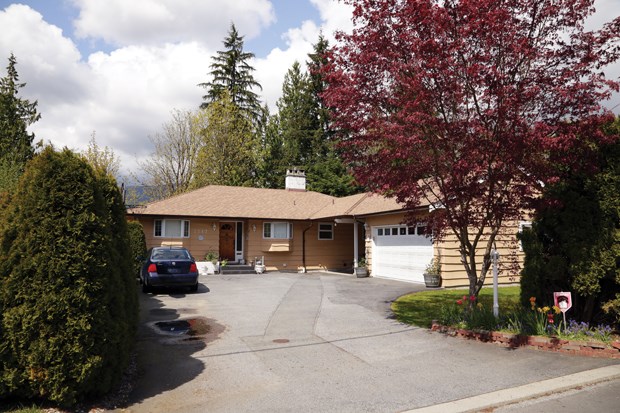A North Shore real estate agent had no reasonable way of knowing the house he was selling in 2001 would be connected to a fatal landslide in 2005, according to a B.C. Supreme Court ruling April 23.
North Vancouver couple Tammy and Martyn Shaw filed suit against real estate agent John McKilligan after concluding he was negligent in failing to inform them of the landslide risk associated with their Berkley Avenue home.
With her regular real estate agent out of the country, Tammy Shaw retained McKilligan in 2001 to help the couple buy 2217 Berkley Ave. for $395,000.
Scarcely three years after closing the deal, a heavy rainstorm saturated the slope, precipitating a landslide on three neighbouring lots that killed one person and seriously injured another.
Later in 2005, Shaw put her home on the market for $739,000. After rejecting an offer of $628,000, the couple concluded the risk of a landslide was the reason their house couldn't fetch a price equivalent to nearby properties. B.C. Assessment recently appraised the property at $757,000.
Besides McKilligan, the Shaws' lawsuit also targeted Margret Thody, who lived in the house during the 1979 landslide when a small portion of fill from the property slid down the escarpment.
Thody should have highlighted the landslide risk to the next owners of the house, who in turn would have been obligated to inform the Shaws, according to the plaintiffs.
Thody had no duty toward the Shaws, according to Justice Robert Sewell, who dismissed the claim.
The 1979 landslide spurred the District of North Vancouver to commission a geotechnical report, which concluded there was a "high risk of major instability."
McKilligan didn't make a reasonable effort to uncover that report, according to the Shaws' suit. However, the plaintiffs failed to establish the report was accessible, according to Sewell.
"It appears that by 2001 (the reports) had been largely forgotten," Sewell stated in his judgment.
The Shaws' case hinged on both establishing the measures a prudent real estate agent would have undertaken as well as proving McKilligan failed to meet those standards, according to Sewell.
The justice cited a recent verdict which also stemmed from the 2005 landslide: "Is searching the Municipal Planning Department or the Public Library for notices or claims issued by a public body over two decades earlier a usual or customary step taken by a reasonable and prudent Realtor?" Sewell asked, quoting Justice Deborah Kleogman.
The Shaws also did not produce appraisal evidence to support the notion the sale price of their house was below the level of other properties, according to Sewell.
The Berkley Avenue home is part of a subdivision developed in the 1950s in which fill was used to create level building lots without regard for geotechnical stability or the forces of nature, according to Sewell.
Following the 2005 landslide, the District of North Vancouver installed a storm sewer along Berkley Avenue and removed fill from six properties to reduce risk of a future tragedy.



